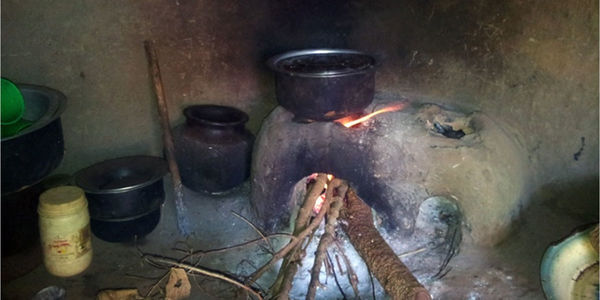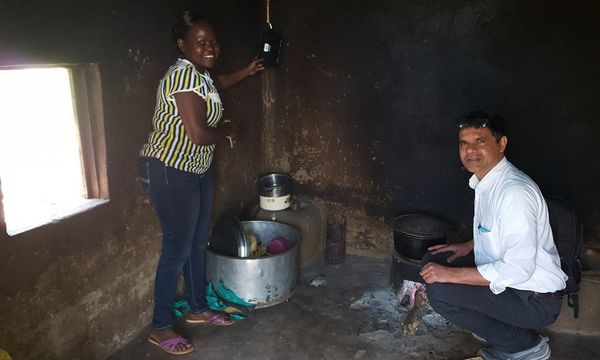

The improved cookstove is a longstanding intervention in Uganda, where 95% of households use solid fuel to cook their food over stone fireplaces. Introducing clean and efficient cookstoves can provide a variety of benefits, including: improved air quality in the home, faster cooking time, reduced fuel usage, and overall tastier meals. In 2014, the Hilton Foundation engaged a team of researchers from the Pulte Institute for Global Development to measure the impact of clean cookstove interventions in the Apac District of Uganda.
“When discussing the project, the implementing partner briefly mentioned that cookstoves might actually reduce gender based violence as well,” said Juan Carlos Guzmán, former Monitoring & Evaluation Specialist with the Pulte Institute. “I was both intrigued and skeptical, and convinced the team to measure this as part of the project.”
In Sub Saharan Africa, and many other developing countries, domestic violence remains prevalent despite multiple efforts to intervene. In Uganda specifically, surveys show that people believe that violence is acceptable if women fail to complete traditional tasks traditionally assigned to them, such as cleaning the home, caring for children, and preparing food. As a result, more than half of married Ugandan women experience physical and emotional abuse in their own homes.
Guzmán and his team – which included Pulte Institute researchers Danice Brown Guzmán and Lila Khatiwada – conducted a randomized control trial in 70 villages in Uganda, measuring air quality, food preparation times, fuel consumption, and gender based violence (GBV). The three year, longitudinal study found that, in addition to achieving the traditional outcomes mentioned, the introduction of efficient cookstoves allowed women to cook tastier food, faster – decreasing domestic violence in households by 15%.
“People hypothesize that one aspect of GBV is about women not fulfilling their traditional role, but there is very little evidence to support this claim. This study is one piece of evidence that shows we can make an impact using a simple and local intervention,” said Danice Brown Guzmán. “Violence towards women is a cultural issue and we need to approach it from a cultural framework.”
Despite positive results, Ms. Guzmán expressed the need to replicate this study across multiple cultures. “This is one study in one region of Uganda. What might work here might not work in India. This concept needs to be tested to see if it’s relevant in other contexts.”
The team presented their unique findings at the 2019 American Evaluators Association Conference and published a paper titled “Improved cookstoves as a pathway between food preparation and reduced domestic violence in Uganda” in World Development Perspectives. You can access the full text online here.
The Pulte Institute for Global Development—an integral part of the Keough School of Global Affairs at the University of Notre Dame—works to address global poverty and inequality through policy, practice, and partnership.
Contact: Heather Asiala, Communications Program Manager, Pulte Institute for Global Development, 574-631-0236, h.asiala@nd.edu
Originally published by at pulte.nd.edu on May 12, 2020.